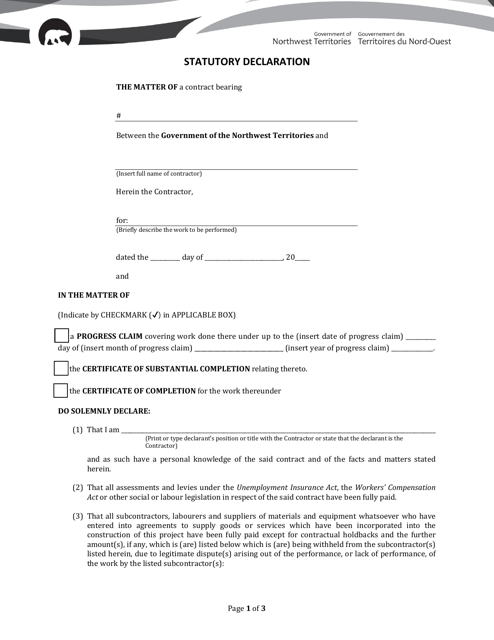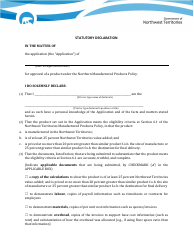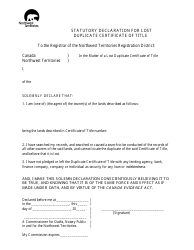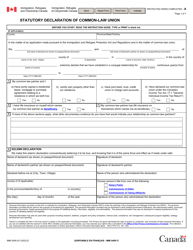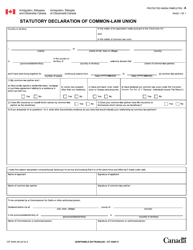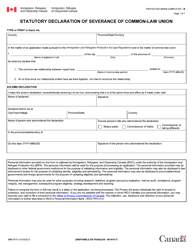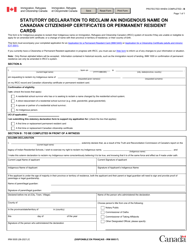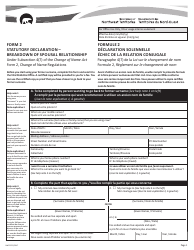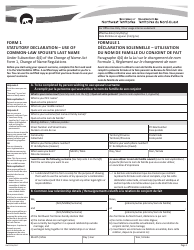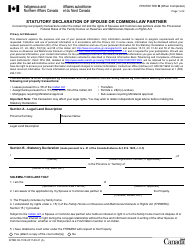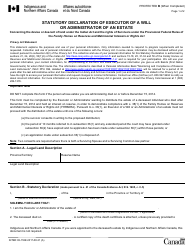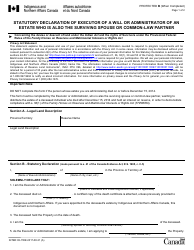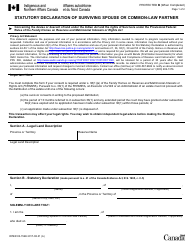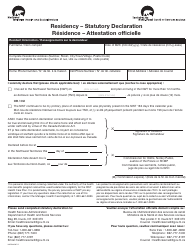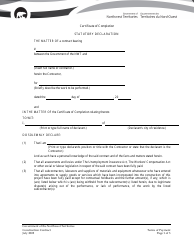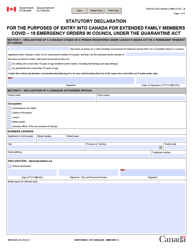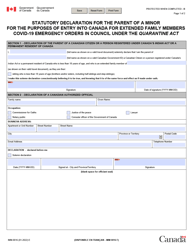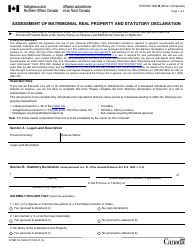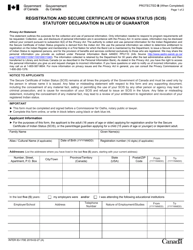Statutory Declaration - Northwest Territories, Canada
A Statutory Declaration in Northwest Territories, Canada is a legal document used to declare facts that are sworn or affirmed to be true. It is typically used for various purposes such as providing evidence in legal proceedings, confirming identity, or making statements under oath.
In Northwest Territories, Canada, a statutory declaration can be filed by any individual who needs to make a legally binding statement.
FAQ
Q: What is a statutory declaration?
A: A statutory declaration is a written statement of facts that is made voluntarily and signed in the presence of a commissioner for oaths.
Q: Who can make a statutory declaration in the Northwest Territories, Canada?
A: Any person who is legally competent can make a statutory declaration.
Q: What is the purpose of a statutory declaration?
A: A statutory declaration is typically used to legally affirm the truth of certain facts, such as in cases involving insurance claims, name changes, or verifying documents.
Q: Who can act as a commissioner for oaths in the Northwest Territories?
A: Commissioners for oaths in the Northwest Territories can be lawyers, notaries public, justices of the peace, or other authorized individuals.
Q: What should I bring when making a statutory declaration in the Northwest Territories?
A: You will need to bring valid identification, the document you are making the declaration for, and any supporting documentation related to the declaration.
Q: Is there a fee for making a statutory declaration in the Northwest Territories?
A: Yes, there is typically a fee associated with making a statutory declaration, which may vary depending on the commissioner for oaths.
Q: Can a statutory declaration be made orally?
A: No, a statutory declaration must be made in writing and signed in the presence of a commissioner for oaths.
Q: Can a statutory declaration be used as evidence in court?
A: Yes, a properly executed statutory declaration can be used as evidence in court proceedings.
Q: Are there any specific requirements for the content of a statutory declaration?
A: Yes, a statutory declaration should include the declarant's full name, address, and occupation, along with a clear statement of the facts being affirmed.
Q: Can I make a statutory declaration on behalf of someone else?
A: No, a statutory declaration must be made personally by the individual who has firsthand knowledge of the facts being declared.
